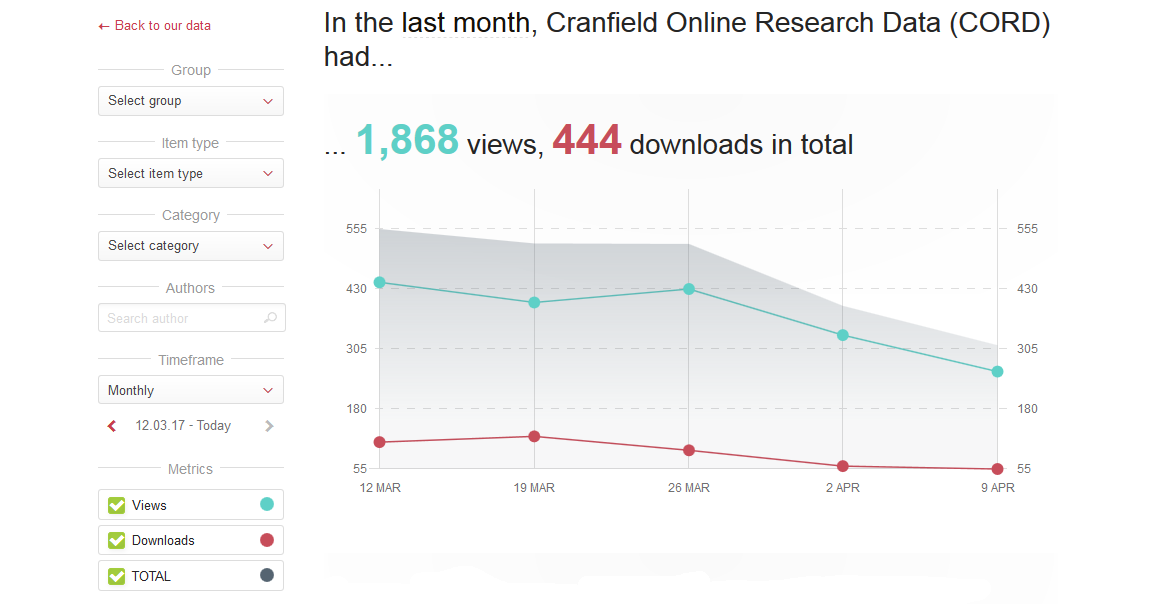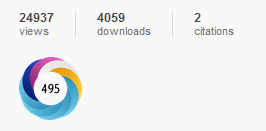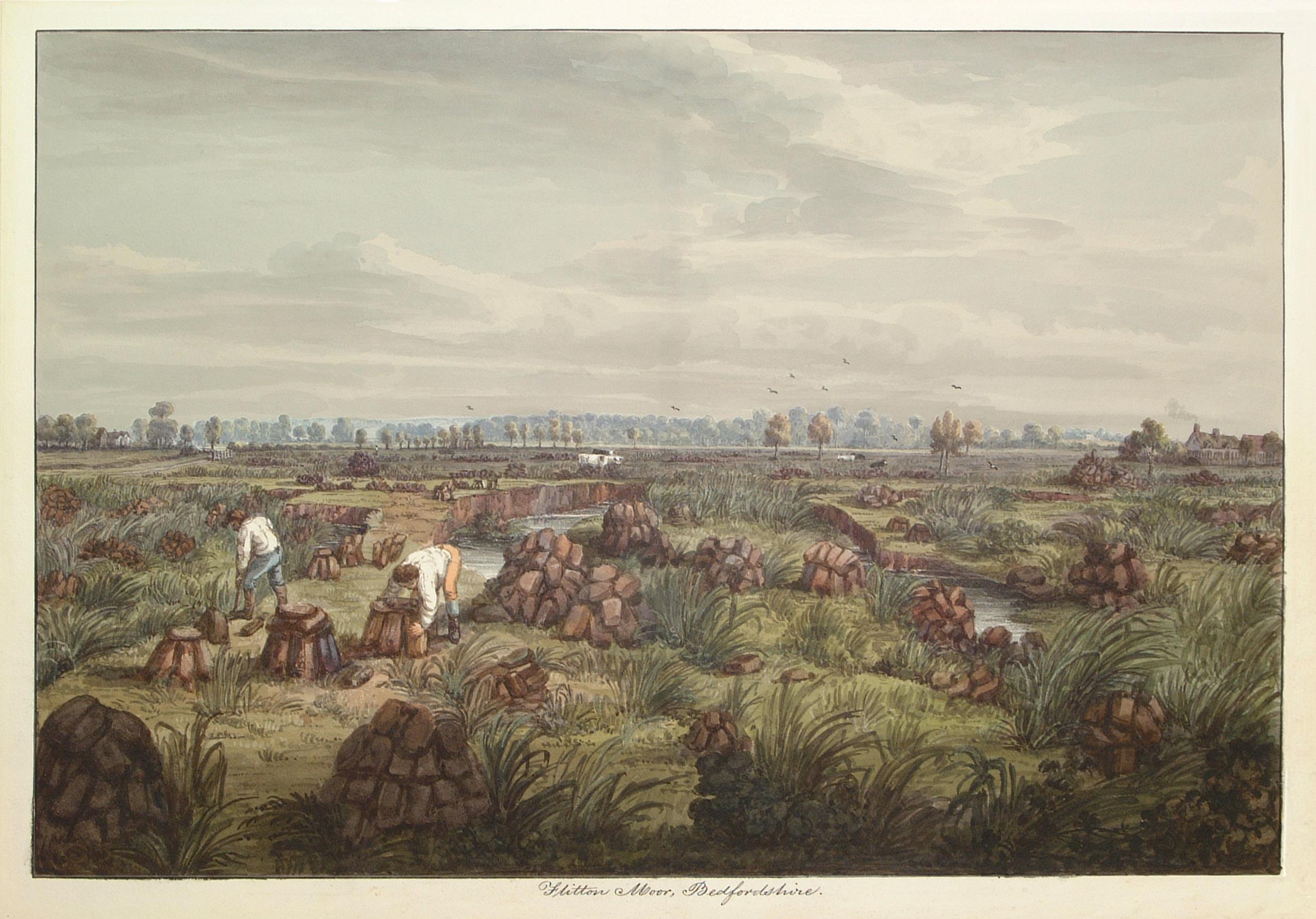Seen these new CORD features?
19/04/2017

Our Cranfield Online Research Data (CORD) repository uses the figshare platform, which is updated roughly every month, so you’ll often see new features, improvements, or bug fixes. Three recent highlights you may be interested in are usage statistics, citation counts, and ORCID integration.
A statistics dashboard: you’ll now see a few key usage statistics on the CORD homepage and a link through to the full dashboard. There you can see Top Ten lists for items, groups, categories, and others, along with a graph of views and/or downloads with various filters of your choice. Do you appear on the lists? Want to see how your theme is doing? It’s now easy to check! (Transport Systems is heading the leaderboard right now, not to start any friendly competition…)
Citation counts: your public items have always included view and download counts, as well as altmetrics, but now citations have been added too. You can find them in the same area, though you probably won’t see figures here immediately. Here’s an example of how it looks on the widely-reused 101 Innovations in Scholarly Communication poster – now there are some stats to aim for!

ORCID: items published on CORD can be pushed through into your ORCID profile (either all pf them or just a selection). The only steps needed are:
- Add your ORCID to your profile in CORD (log in > edit profile in the top right dropdown by your name).
- Log in to ORCID, scroll to the Works section, click +Add works, select Search & link, select DataCite.
- At this point, you can choose to enable ‘auto-update’, i.e. everything you publish in CORD goes to your ORCID, or (our recommendation) you can use ‘Search and link’ to see a list of your CORD items and choose which ones appear in your ORCID.
There are more exciting developments in the pipeline, such as folder support and batch editing records, and feedback from researchers is always extremely valuable to make sure priorities are led by your needs. So, if there’s anything else you’d like to see developed, or you’d like a quick introduction to CORD to help you start using it, please don’t hesitate to get in touch at researchdata@cranfield.ac.uk or on 01234 754548.
Categories & Tags:
Leave a comment on this post:
You might also like…
My Apprenticeship Journey – Broadening Horizons
Laura, Senior Systems Engineer at a leading aircraft manufacturing company, joined Cranfield on the Systems Engineering Master’s Apprenticeship after initially considering taking a year off from her role to complete an MSc. Apprenticeship over MSc? ...
The Library app is back!
The Library app is back! It's exactly the same as before (although it will get a fresh look in a few months) and if you hadn't removed it from an existing device it should just ...
PhD researcher at the IF Oxford Science and Ideas Festival
IF Oxford is a science and ideas Festival packed with inspiring, entertaining and immersive events for people all ages. PhD researcher, Zahra attended the festival. Here she shares what motivated her to get involved. ...
What leadership skills are required to meet the demands of digitalisation?
Digital ecosystems are shifting the dynamics of the world as we know it. With digitalisation being a norm in the software industry, there is currently a rapid rise in its translation ...
My PhD experience within the Centre for Air Transport at Cranfield University
Mengyuan began her PhD in the Centre for Air Transport in October 2022. She recently shared what she is working on and how she has found studying at Cranfield University so ...
In the tyre tracks of the Edwardian geologists
In April 1905 a group of amateur geologists loaded their cumbersome bicycles on to a north-bound train at a London rail station and set off for Bedfordshire on a field excursion. In March 2024 a ...






